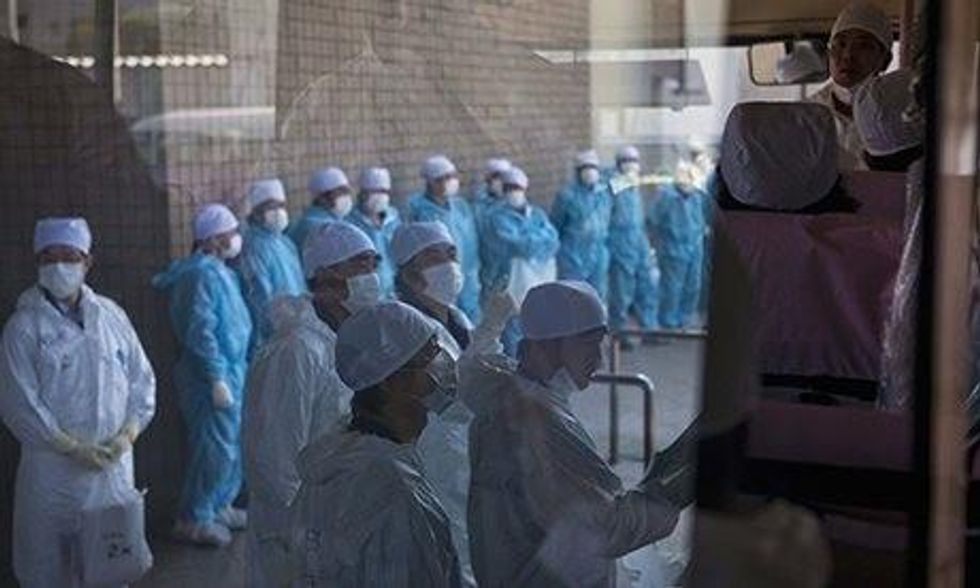Workers trying to stabilize the devastated
Fukushima nuclear power plant are struggling to keep up with the work amid ongoing crises, health problems, poor wages and falling morale,
The Guardian reports Wednesday.
Roughly 6,000 workers are currently employed at the plant by the operator TEPCO. However, that number is a fraction of the size of Fukushima employees before the crises--many of whom have left due to radiation exposure limits.
Workers' pay is falling too, with a 20% pay cut for all employees taken in 2011. And the majority of workers at the plant now come from low-paying contractors and subcontractors.
According to The Guardian, these workers "are suffering from plummeting morale, health problems and anxiety about the future," with at least another 40 years ahead before the plant might be stabilized. Fukushima workers are currently understaffed and overworked, yet they are expected to carry "the future of Japan" on their shoulders, as Japan's prime minister Shinzo Abe recently told them.
Jun Shigemura, a lecturer in the psychiatry department at the National Defense Medical College who heads a team of psychologists who counsel Fukushima plant workers told The Guardian he is worried about the 70% of TEPCO workers at Fukushima Daiichi who were also forced to evacuate their homes by the meltdown.
"They were traumatized by the tsunami and the reactor explosions and had no idea how much they had been irradiated," Shigemura said. "That was the acute effect but now they are suffering from the chronic effects, such as depression, loss of motivation and issues with alcohol."
Commenting on a recent accident in which six men were doused with contaminated radioactive water from a leaking pipe, the head of Japan's Nuclear Regulation Authority (NRA), Shunichi Tanaka, told reporters, "Mistakes are often linked to morale. People usually don't make silly, careless mistakes when they're motivated and working in a positive environment. The lack of it, I think, may be related to the recent problems."
"TEPCO is spending its money on fixing the technical problems, but it also needs people to carry out that work, said Akihiro Yoshikawa, a TEPCO employee of 14 years who recently left the company. "I'm very worried about the labour shortage. If they don't do something about it soon, the employment system at Fukushima Daiichi will collapse first, not the plant."
The Guardian adds:
TEPCO documents show that between March 2011 and July this year, 138 employees reached the 100-millisievert [mSv] threshold; another 331 had been exposed to between 75 mSv and 100 mSv, meaning their days at the plant are numbered. Those nearing their dose limit have reportedly been moved to other sites, or asked to take time off, so they can return to work at Fukushima Daiichi at a later date. [...]
Earlier this year, TEPCO said that 1,973 workers, including those employed by contractors and subcontractors, had estimated thyroid radiation doses in excess of 100 mSv, the level at which many physicians agree the risk of developing cancer begins to rise.
Yukiteru Naka, a retired engineer with General Electric who helped build some of Fukushima Daiichi's reactors, said, "There aren't enough trained people at Fukushima Daiichi even now," adding, "For TEPCO, money is the top priority - nuclear technology and safety come second and third. That's why the accident happened. The management insists on keeping the company going. They think about shareholders, bank lenders and the government, but not the people of Fukushima."
_______________________




